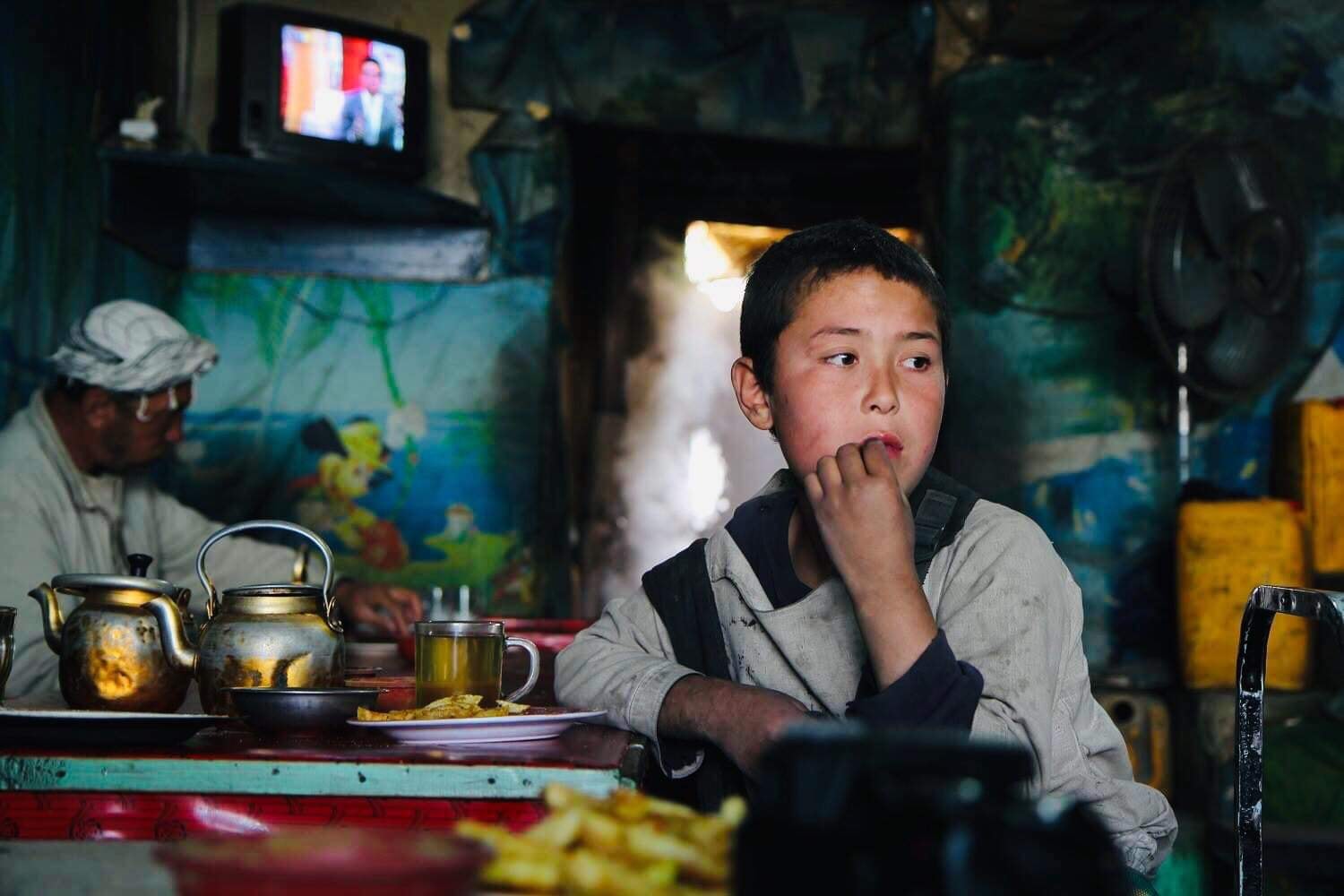Like a Rocket in the Garden: The Unending War in Afghanistan
TRANSCEND MEMBERS, 30 Nov 2020
Kathy Kelly – TRANSCEND Media Service
People in the United States continue to pretend that the despair and futility we’ve caused isn’t our fault.
25 Nov 2020 – Late last week, I learned from young Afghan Peace Volunteer friends in Kabul that an insurgent group firing rockets into the city center hit the home of one volunteer’s relatives. Everyone inside was killed. Today, word arrived of two bomb blasts in the marketplace city of Bamiyan, in central Afghanistan, killing at least fourteen people and wounding forty-five.
These explosions have come on the heels of other recent attacks targeting civilians. On November 2, at least nineteen people were killed and at least twenty-two wounded by gunmen opening fire at Kabul University. On October 24, at least two dozen students died, and more than 100 were wounded in an attack on a tutoring center.
“The situation in our country is very bad and scary,” one young Afghan friend wrote to me. “We are all worried.” I imagine that’s an understatement.
A new report released by Save the Children, regarding violations against children in war zones, says Afghanistan accounts for the most killing and maiming violations, with 874 children killed and 2,275 children maimed in 2019.
Since the United Nations started collecting this data in 2005, more than 26,000 Afghan children have died.
Under President Donald Trump, the United States signed a “peace” deal with the Taliban in February 2020. It pertains to troop withdrawal and a Taliban pledge to cut ties with Al Qaeda in Afghanistan. The agreement certainly hasn’t contributed toward a more peaceful life for Afghans, and a U.N. report indicates the Taliban has continued its ties with insurgent groups.
Now, Afghans face constant battles between insurgent groups, U.S. forces, Afghan government forces, NATO forces, various powerful Afghan warlords, and paramilitaries organized by ruthless mafias which control much of the drug industry and other profitable enterprises.
Under President Biden, the United States would likely abide by Trump’s recent troop withdrawals, maintaining a troop presence of about 2,000. But Biden has indicated a preference for intensified Special Operations, surveillance and drone attacks. These strategies could cause the Taliban to nullify their agreement, prolonging the war through yet another presidency.
Mujib Mashal, a correspondent for The New York Times, was born in Kabul. When he was interviewed recently by one of his colleagues, he recalled being a little boy in the early 1990s, living through a civil war in Kabul, when rockets constantly bombarded his neighborhood.
Taliban groups were fighting various mujahideen. Mujib’s father cultivated a vegetable garden outside their home. One day, a rocket hit the garden, cutting an apple tree in half and burrowing deep into the ground.
But it didn’t explode.
Mujib remembers how his father watered the area where the rocket hit, for years, hoping the bomb would eventually rust and never explode. Now he worries that Afghanistan is headed toward an explosion of violence.
“And the fear is that in that space of war, things only get more extreme,” he told the Times. “The violence only gets more extreme. The brutality gets more extreme. That if this slips into another generational conflict, what we’ve seen over the past forty years in terms of the brutality will probably pale in comparison to what will come.”
I recently watched a video of a talk given in June of this year by Dr. Zaher Wahab, an Afghan professor in Portland, Oregon, who laments the intensifying havoc and violence war is causing in Afghanistan. He and his wife lived there for six years, until about a year ago, when they concluded that the city was unlivable.
Dr. Wahab believes there is no military solution to Afghanistan’s woes and calls for the United States to demilitarize as soon as possible. But he also offers ways forward.
He urges forming a multinational trust fund to justly assist with reconstruction in Afghanistan, including efforts to clear mines and clean up unexploded ordnance. Billions of
dollars would be needed, commensurate to the sums spent on funding the war. He believes the United Nations should form a peacekeeping presence in Afghanistan relying on non-NATO countries.
The publication of the “Afghanistan papers” late last year highlighted the failure of the United States to accomplish any of its stated missions in Afghanistan. John Sopko, the Special Inspector General for Afghan Reconstruction, expressed his astonishment over the “hubris and mendacity” he had witnessed on the part of U.S. military and civilian personnel in Afghanistan.
Despite its failures, the United States continues to bomb Afghan civilian areas. In 2019, the U.S. dropped 7,423 bombs and other munitions on Afghanistan.
For Afghan civilians, ongoing war means continued bereavement, displacement, and despair. Bereft of income or protection, many Afghan householders join militias, pledging their support and possibly their willingness to fight or even die. Hence the rise of the Afghan Local Police, numerous militias fighting for various warlords, the Afghan governments’ fighting forces, including “ghost soldiers” who appear in name only, CIA-trained paramilitaries, and military contractors working for NATO contingents.
Afghanistan is a cauldron waiting to explode.
U.S. Army Major Danny Sjursen, retired, notes that in the 2020 election, neither presidential candidate questioned status quo norms about U.S. foreign policy being based on threat, force, and killing. Sjursen assures that pressure to change must, necessarily, flow from the grass roots.
The United States has landed in Afghanistan like a rocket in a garden. It refuses to rust, it poisons the Earth, and even U.S. voters can’t budge it. Normal life can’t continue with us there.
Meanwhile, an inevitably arriving Taliban-led government—one already in control of most of the country—is growing more fanatic and deadly.
Many U.S. voters, and too many Afghans, weren’t yet born when the current war was begun by the United States in 2001. Much of the U.S. public regards the Afghan people with deadly indifference.
Year after year, President after President, Americans continue to pretend the despair and futility we’ve caused in Afghanistan isn’t our fault. We don’t hold ourselves accountable.
But the forever wars, illegal and immoral, bankrupt our economy and our society as well. The military contractors become a sort of mafia. They are like a bomb in our garden, liable to explode.
And, unlike our Afghan counterparts, it’s not a bomb we can complain about. After all, we put it there.
_________________________________________
 Kathy Kelly is a member of the TRANSCEND Network for Peace Development Environment, an American peace activist, pacifist and author, one of the founding members of Voices in the Wilderness, and currently a co-coordinator Voices for Creative Nonviolence. Three times since 2000, she has been nominated for the Nobel Peace Prize. As part of peace teamwork in several countries, she has traveled to Iraq twenty-six times, notably remaining in combat zones during the early days of both US-Iraq wars. Her recent travel has focused on Afghanistan and Gaza, along with domestic protests against U.S. drone policy. She has been arrested more than sixty times at home and abroad, and written of her experiences among targets of U.S. military bombardment and inmates of U.S. prisons. She lives in Chicago. Kathy@vcnv.org – info@vcnv.org
Kathy Kelly is a member of the TRANSCEND Network for Peace Development Environment, an American peace activist, pacifist and author, one of the founding members of Voices in the Wilderness, and currently a co-coordinator Voices for Creative Nonviolence. Three times since 2000, she has been nominated for the Nobel Peace Prize. As part of peace teamwork in several countries, she has traveled to Iraq twenty-six times, notably remaining in combat zones during the early days of both US-Iraq wars. Her recent travel has focused on Afghanistan and Gaza, along with domestic protests against U.S. drone policy. She has been arrested more than sixty times at home and abroad, and written of her experiences among targets of U.S. military bombardment and inmates of U.S. prisons. She lives in Chicago. Kathy@vcnv.org – info@vcnv.org
This article first appeared in The Progressive
Tags: Afghanistan, Anglo America, Child labor, Child protection, NATO, US Military
This article originally appeared on Transcend Media Service (TMS) on 30 Nov 2020.
Anticopyright: Editorials and articles originated on TMS may be freely reprinted, disseminated, translated and used as background material, provided an acknowledgement and link to the source, TMS: Like a Rocket in the Garden: The Unending War in Afghanistan, is included. Thank you.
If you enjoyed this article, please donate to TMS to join the growing list of TMS Supporters.

This work is licensed under a CC BY-NC 4.0 License.


Dear Kathy Kelly,
The war in Afghanistan cannot end and, it it ended, it would mean the military industry has arranged, via their Government, Embassy, and secret services, to bribe the government of another country. This is how all wars occur and why we cannot live and let live in Peace.
Look at Paul Biya, presiding his country , Cameroon, from the third floor of te Intercontinental Hotel in Geneva, Switzerland. Protected by the United Nations for 41 years, received by the Queen of Britainat Buckingham Palace, by US Presidents at the White House. Whilst allowing civil conflicts in his own country, which means buying weapons for the official and rebel armies, he’s OK.
The list of politicians bribed in this way is endless. You have to understand that politicians of the manufacturing and exporting countries also benefit from war-promoting.
If you sincerely wish to create a fair world, work for the Abolition of Militarism. The only way a Defense Minister can defend his country, is by making sure his country has enemies. This is what politicians, diplomats and secret services specialize in, most of the time in partnership with the Media.
It’s a fine piece, with historical context, and a plea for rationality and humanity. (One would expect no less from Kathy Kelly–the most worthy person I know, deserving of a Nobel Peace Prize. She has been to the war zones. She has comforted the sick and dying. She is brave, wise and humble. For those less familiar with her work, I recommend her book, “Other Lands Have Dreams.”
2 editorial recommendations for this piece: a “rocket” in the garden could be a good thing, as a rocket-ship can take us to better worlds–especially in a child’s imagination. “Bomb” is the right word. And, personally, I’d start the piece with the 7 short paragraphs that follow this statement: “Afghanistan is a cauldron waiting to explode.”
For political tallying, I thought this was well-placed, thoughtful, a warning sign of dangers around the bend:
“Under President Biden, the United States would likely abide by Trump’s recent troop withdrawals, maintaining a troop presence of about 2,000. But Biden has indicated a preference for intensified Special Operations, surveillance and drone attacks. These strategies could cause the Taliban to nullify their agreement, prolonging the war through yet another presidency.”
I do wish Americans would stop exulting over illusionary “victories” they do not understand!
Alberto Portugheis’s comments were also well-considered; especially his concluding paragraph; not much applicable to Kathy Kelly, but for the rest of us:
“If you sincerely wish to create a fair world, work for the Abolition of Militarism. The only way a Defense Minister can defend his country, is by making sure his country has enemies. This is what politicians, diplomats and secret services specialize in, most of the time in partnership with the Media.”
Perhaps a little more insight into Kathy Kelly’s powerful and compassionate work can be found here:
https://www.poemhunter.com/poem/when-kathy-kelly-went-to-jail/
[…] Like a Rocket in the Garden – The Unending War in Afghanistan: Kathy Kelly reports, “Mujib’s father cultivated a vegetable garden outside their home. One day, a rocket hit the garden, cutting an apple tree in half and burrowing deep into the ground. But it didn’t explode. Mujib remembers how his father watered the area where the rocket hit, for years, hoping the bomb would eventually rust and never explode. Now he worries that Afghanistan is headed toward an explosion of violence.” Read more>> […]